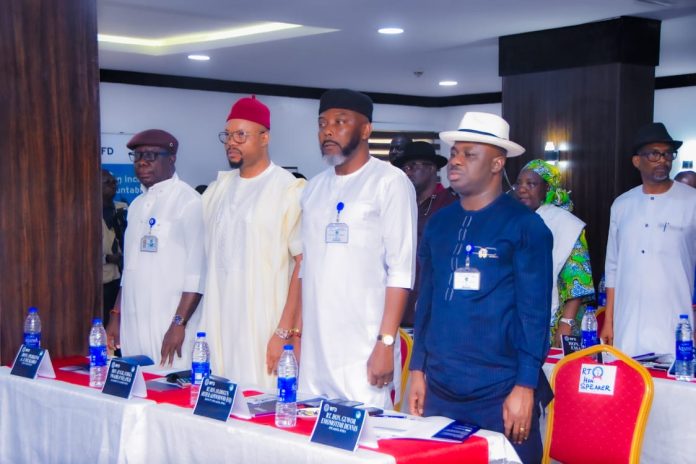The Westminster Foundation for Democracy (WFD) on Post-Legislative Scrutiny, has applauded the Delta State House of Assembly for taking decisive steps toward institutionalizing PLS in the State Legislature.
The Country Director of WFD Nigeria, Mr. Adeboeale Olorunmola, described the development as a bold and progressive move that demonstrates the Assembly’s commitment to responsive governance.
He noted that the WFD partnership with the Delta State House of Assembly was built on the successes recorded in Oyo State, saying that the collaboration marked another milestone in strengthening legislative accountability in Nigeria.
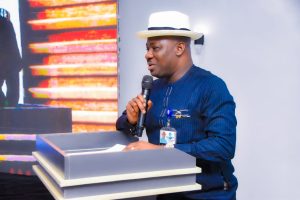
Olorunmola maintained that by validating and adopting a framework for Post-Legislative Scrutiny, Delta is positioning itself as a model for subnational legislatures in promoting transparency, effectiveness, and citizen centered lawmaking.
He reaffirmed WFD’s readiness to provide technical support, training, and resources to ensure the successful takeoff of the PLS framework in the state, adding that the initiative will further bridge the gap between lawmaking and public impact.
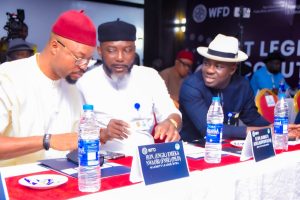
The WFD Country Director also stressed that the validation of the PLS framework will provide a structured roadmap for the Assembly to monitor law implementation, engage stakeholders, and make necessary legislative adjustments for better governance outcomes.
In his keynote address, the Speaker Delta State House of Assembly, Rt Hon Emomotimi Dennis Guwor, announced plans to institutionalize Post-Legislative Scrutiny (PLS) as a permanent feature of legislative and oversight processes of the State Legislature, in a bold move to deepen transparency, accountability, and evidence-based governance across the state.
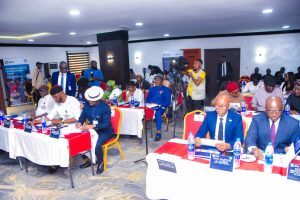
Speaking at the workshop which was held on Thursday in Asaba, the Speaker said the 8th Assembly is fully committed to ensuring that the laws it enacts produce measurable outcomes and tangible benefits for the people of Delta State.
He described PLS as “a subject that lies at the heart of democratic governance and effective lawmaking,” and commended WFD for partnering with the Delta State House of Assembly to promote institutional reform and strengthen democratic processes.
Guwor stressed that for any serious legislature, PLS is not optional but essential, stating “Our constitutional duty does not end with the passage of a bill. We must ensure that the laws we enact serve the people’s interests, remain relevant in a changing society, and are faithfully implemented by the executive arm of government”.
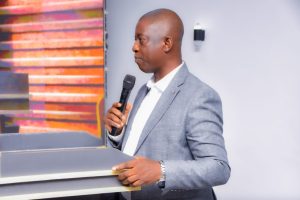
The Speaker noted that the Assembly has passed many progressive laws in the areas of health, education, environment, social welfare, infrastructure, and youth empowerment, but added that without structured review mechanisms, it is difficult to measure their effectiveness or identify areas that require legislative improvement.
“Establishing a culture of Post-Legislative Scrutiny will enhance the quality of our lawmaking, promote evidence-based policymaking, and deepen citizens’ trust in the legislative institution. This is why this workshop is both timely and necessary”, Guwor stated.
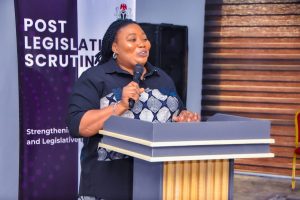
The Speaker explained that in countries such as the United Kingdom and other Commonwealth democracies, PLS is a well-established legislative practice that enables parliaments to track law implementation, engage stakeholders, and make amendments where necessary.
He pointed out that the Oyo State House of Assembly remains the only legislature in Nigeria that has formally integrated PLS into its oversight functions with the support of WFD and the National Institute for Legislative and Democratic Studies (NILDS), adding that Delta is now poised to follow suit.
“The Delta State House of Assembly will join this league as the second legislature in the country and the first in the South-South region to institutionalize PLS. We will not stop merely as number two, but will strive to become a leading example of how subnational legislatures can innovate to serve their people better.”
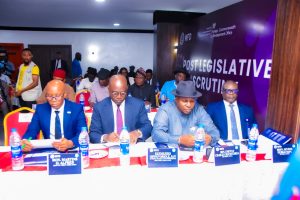
Guwor revealed that the Assembly, in partnership with WFD, will validate and adopt a comprehensive framework for institutionalizing PLS, describing it as a critical step toward embedding a structured and continuous review of legislation in the state’s governance framework.
Outlining the Assembly’s plan, the Speaker said it will collaborate with WFD to: Develop a clear framework for PLS with defined rules, timelines, and reporting mechanisms; Build the capacity of legislative staff for evidence-based scrutiny; Collaborate with civil society, academia, and the media for inclusiveness and transparency; and Work with the executive arm to ensure that recommendations from PLS exercises are effectively implemented.
He added that the Assembly will also integrate PLS into the regular oversight activities of its standing and special committees.
While commending WFD for its unwavering support in promoting legislative excellence, Guwor praised the organisation’s contributions through research, training, and technical assistance, which he said have strengthened subnational legislatures in Nigeria.
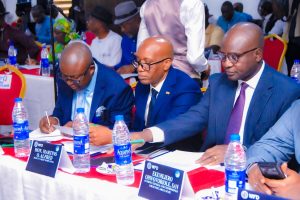
He said “Effective laws are not those that merely exist on paper but those that make a measurable difference in people’s lives. Post-Legislative Scrutiny would further ensures that the promises we make through legislation are translated into tangible outcomes for the people we represent.”
Guwor, while appreciating WFD’s continued partnership, called on all participants to commit themselves to building a more accountable, responsive, and impactful legislature that stands as a beacon of democracy in Delta State and across Nigeria.
“Together, let us make Post-Legislative Scrutiny a living part of our democratic culture in Delta State,” he concluded.
A similar training workshop was held on Wednesday for senior and middle management team of the Parliamentary Workforce in Delta State, while Validation of Framework for the Establishment of a PLS Unit in the Delta State House of Assembly is scheduled for next day, Friday, 24 October 2025.


